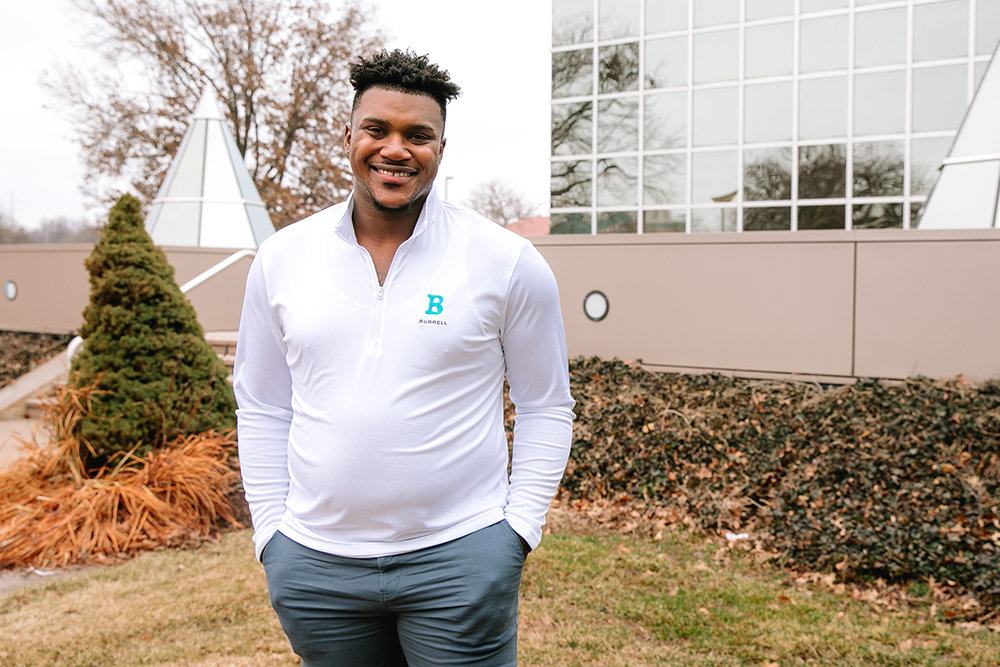YOUR BUSINESS AUTHORITY
Springfield, MO
YOUR BUSINESS AUTHORITY
Springfield, MO

The Kaiser Family Foundation found more than half of Americans said their mental health suffered through this pandemic. Considering the past year’s social and political unrest, how is mental health continuing to be a challenge?
If you have a brain, you have mental health. Our brains are in most ways the most resilient parts of our body, but for whatever reason, we neglect our mind, our brains, our mental health as if it doesn’t impact or affect our overall health. Our brains will teach us to survive. When our brains are not super focused on survival, our brains are focused on connecting. Whenever our brains are just on heightened stress mode and on heightened stress response, then we really do start to feel it. It starts to take a toll on our entire beings. It’s no surprise that things like suicide ideology, depression and anxiety are skyrocketing. The pandemic has literally shaken our entire lives. Then you have a heightened political climate where literally history is being made: Our first female and Black/South Asian vice president. There is such a divide here in America. It’s really no surprise that our mental health is suffering. We’re in a constant state of chaos. We need to start shedding more light on that. People need to take care of their mental health, however you can do that.
Are there disparities experienced with mental health care in minority communities? What is Burrell doing to address it?
As many other businesses must do, Burrell is looking internal. We have been and are wanting to ensure that our policies, our practices, our procedures are a fit with best practices and are following the standards that are set forth by national organizations. And then we are creating safe spaces and trying to create an atmosphere of internal dialogue of self evaluations: Are we creating an atmosphere for marginalized communities to come into our services and have access to high-quality care? You have to take into account current events. You have to look internally, and then you have to look at each subpopulation and their historical barriers to mental health. For example, the Black population, which I identify with, there is a stigma around mental health. There is heavy religious involvement that has been built, heavy family involvement, but there’s also this stigma that mental illness isn’t really for Black people. We have this resilience. There is this practice that you pull yourself up. We have to make sure that BIPOC, Black indigenous, people of color, LGBTQIA-plus individuals that are in poverty, all the marginalized groups are able to come into Burrell’s doors and have access to high-quality care. Burrell is trying to do outreach to these communities, trying to train up staff to ensure that we have a plethora of clinicians, community support workers, front-desk staff equipped to work with future clients from all different backgrounds.
Does reaching those communities involve a diverse workforce to care for them?
Representation absolutely matters. For many of the helping professions, it tends to be female generated, it tends to be white generated, which in many ways are fine, but the recruitment, retention, advancement of people of color and LGBTQIA-plus people from different backgrounds can really provide that extra level of comfort. That extra perspective can go into making policies and even into marketing materials so people can feel like they are welcomed.
How do these areas of mental health and diversity and inclusion factor into your decision to run for the Springfield Public Schools Board of Education?
I have three areas of focus that I want to help grow. One has to do with mental health. Students are struggling, our administrators are struggling, our teachers are struggling, and none of them is exempt from the crises that we’ve been dealing with. The second one is diversity, equity and inclusion. There are many students that never see anybody that looks like them in the classroom. That takes a toll, and this is why representation matters. The equity part is helping to pinpoint the different barriers to high-quality education that exists and addressing those. The school system has been dealing with the transportation issue, which has been identified, high-schoolers are struggling the most with that. They’ve identified that there are students that are unable to access the Choice program, which is creating barriers for a certain demographic of students. The last thing is just being a bridge between the community and the public schools and the teachers and administration.
Daniel Ogunyemi can be reached at d_ogunyemi@yahoo.com.
Missouri State University’s science building, built in 1971 and formerly called Temple Hall, is being reconstructed and updated.